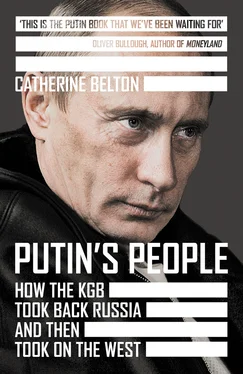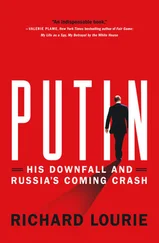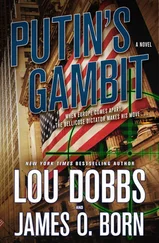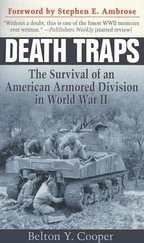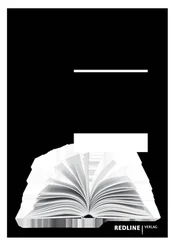His command of detail is impressive. So too is his grasp of the vast problems facing the city’s economy. He speaks with fluency of the need to develop a class of small and medium business owners as the backbone of the new market economy. Indeed, he says, ‘The entrepreneurial class should become the basis for the flourishing of our society as a whole.’
He speaks with precision on the problems of converting the region’s vast Soviet-era defence enterprises to civilian production in order to keep them alive. Sprawling plants like the Kirovsky Zavod, a vast artillery and tank producer in the south of the city, had been the region’s main employer since tsarist times. Now they were at a standstill, as the endless orders for military hardware that fuelled and eventually bankrupted the Soviet economy had suddenly dried up. We have to bring in Western partners and integrate the plants into the global economy, says the young city official.
With sudden intensity, he speaks of the harm Communism wrought in artificially cutting off the Soviet Union from the free-market relations linking the rest of the developed world. The credos of Marx and Lenin ‘brought colossal losses to our country’, he says. ‘There was a period of my life when I studied the theories of Marxism and Leninism, and I found them interesting and, like many of us, logical. But as I grew up the truth became ever more clear to me – these theories are no more than harmful fairy tales.’ Indeed, the Bolshevik revolutionaries of 1917 were responsible for the ‘tragedy we are experiencing today – the tragedy of the collapse of our state’, he boldly tells the interviewer. ‘They cut the country up into republics that did not exist before, and then destroyed what unites the people of civilised countries: they destroyed market relations.’
It is just a few months since his appointment as deputy mayor of St Petersburg, but already it is a powerful, carefully crafted performance. He sits casually straddling a chair backwards, but everything else points to precision and preparation. The fifty-minute film shows him on the judo mat flipping opponents over his shoulder, speaking fluent German with a visiting businessman, and taking calls from Sobchak about the latest foreign aid deals. His meticulous preparation extends to the man he specifically requested to conduct the interview and direct the film: a documentary film-maker known and loved across the Soviet Union for a series he made intimately charting the lives of a group of children, a Soviet version of the popular UK television series Seven Up . Igor Shadkhan is a Jew, who recently returned to St Petersburg from making a series of films on the horrors of the Soviet Gulag in the far north; a man who still flinches at the memory of anti-Semitic slurs from Soviet times, and who, by his own admittance, still ducks his head in fear whenever he passes the former headquarters of the KGB on the city’s Liteyny Prospekt.
Yet this is the man Putin chose to help him with a very special revelation, the man who will convey to the world the fact that Putin had served as an officer in the feared and hated KGB. It is still the first wave of the democracy movement, a time when admitting this could compromise his boss, Sobchak, a rousing orator who rose to mayor on a tide of condemnation of the secrets of the old regime, of the abuses perpetrated by the KGB. To this day, Shadkhan still questions whether Putin’s choice was part of a careful rehabilitation plan. ‘I always ask why he chose me. He understood that I was needed, and he was ready to tell me he was from the KGB. He wanted to show that people of the KGB were also progressive.’ Putin chose well. ‘A critic once told me that I always humanised my subject matter, no matter who they were,’ Shadkhan recalls. ‘I humanised him. I wanted to know who he was and what did he see. I was a person who had always criticised the Soviet authorities. I endured a lot from them. But I was sympathetic to him. We became friends. He seemed to me one who would drive the country forward, who would really do something. He really recruited me.’[2]
Throughout the film, Putin artfully takes opportunities to stress the good qualities of the KGB. Where he served, he insists in response to a delicate question on whether he abused his position to take bribes, such actions were considered ‘a betrayal of the motherland’, and would be punished with the full force of the law. As for being an ‘official’, a chinovnik , the word need not have any negative connotation, he claims. He’d served his country as a military chinovnik ; now he was a civilian official, serving – as he had before – his country ‘outside the realm of political competition’.
By the end of the documentary, Shadkhan appears to have fully bought in. The film concludes with a nod and a wink to a glorified KGB past: Putin is shown surveying the icy river Neva, wrapped against the cold in a fur hat, a man of the people behind the wheel of a white Zhiguli, the boxy car ubiquitous in those days. As he watches over the city with a steely and protective gaze, the film closes to the strains of the theme tune from a popular Soviet TV series – 17 Moments of Spring – that made a hero out of an undercover KGB spy who had infiltrated deep into Nazi Germany’s ruling regime. It was Shadkhan’s choice. ‘He was a person exactly of his profession. I wanted to show how it turned out that he was still in the same profession.’
Putin, however, had taken care in the interview to give the impression that he’d resigned from the KGB as soon as he’d returned to Leningrad, as St Petersburg was then called, in February 1990. He told Shadkhan that he’d left for ‘all kinds of reasons’, not for political ones, indicating that he’d done so before he started working in May of that year with Sobchak, then a law professor at Leningrad’s State University and the fast-rising star of the city’s new democratic movement. Putin had returned to the tsarist-era capital from five years of service in Dresden in East Germany (the German Democratic Republic, or GDR), where he’d served as liaison officer between the KGB and the Stasi, the East German secret police. Later legend had it that he’d confided to a colleague that he feared he might have no better future than working as a taxi driver on his return.[3] Apparently he was keen to create the impression that he’d cut all ties to his old masters, that Russia’s rapidly changing order had cast him adrift.
What Putin told Shadkhan was just the start of a string of falsehoods and obfuscation surrounding his KGB career. In the imploding empire that he had returned to from Dresden, nothing was quite as it seemed. From the KGB villa perched high on the banks of the river Elbe overlooking Dresden’s still elegant sprawl, Putin had already witnessed at first hand the end of the Soviet empire’s control of the GDR, the collapse of the so-called socialist dream. The Soviet Union’s Warsaw Pact power bloc had shattered around him as its citizens rebelled against the Communist leadership. He’d watched, first from afar, as the aftershocks began to reverberate across the Soviet Union and, inspired by the Berlin Wall’s collapse, nationalist movements spread ever more rapidly across the country, forcing the Communist leader Mikhail Gorbachev into ever more compromise with a new generation of democratic leaders. By the time of Putin’s interview with Shadkhan, one of those leaders, Boris Yeltsin, had emerged victorious from an attempted hard-line coup in August 1991. The abortive putsch had sought to turn the clock back on political and economic freedoms, but ended in resounding failure. Yeltsin banned the Communist Party of the Soviet Union. The old regime, suddenly, seemed to have been swept away.
But what replaced it was only a partial changing of the guard, and what happened to the KGB was a case in point. Yeltsin had decapitated the top echelon of the KGB, and then signed a decree breaking it up into four different domestic services. But what emerged in its place was a hydra-headed monster in which many officers, like Putin, retreated to the shadows and continued to serve underground, while the powerful foreign-intelligence service remained intact. It was a system where the rules of normal life seemed to have long been suspended. It was a shadowland of half-truths and appearances, while underneath it all factions of the old elite continued to cling to what remained of the reins.
Читать дальше
